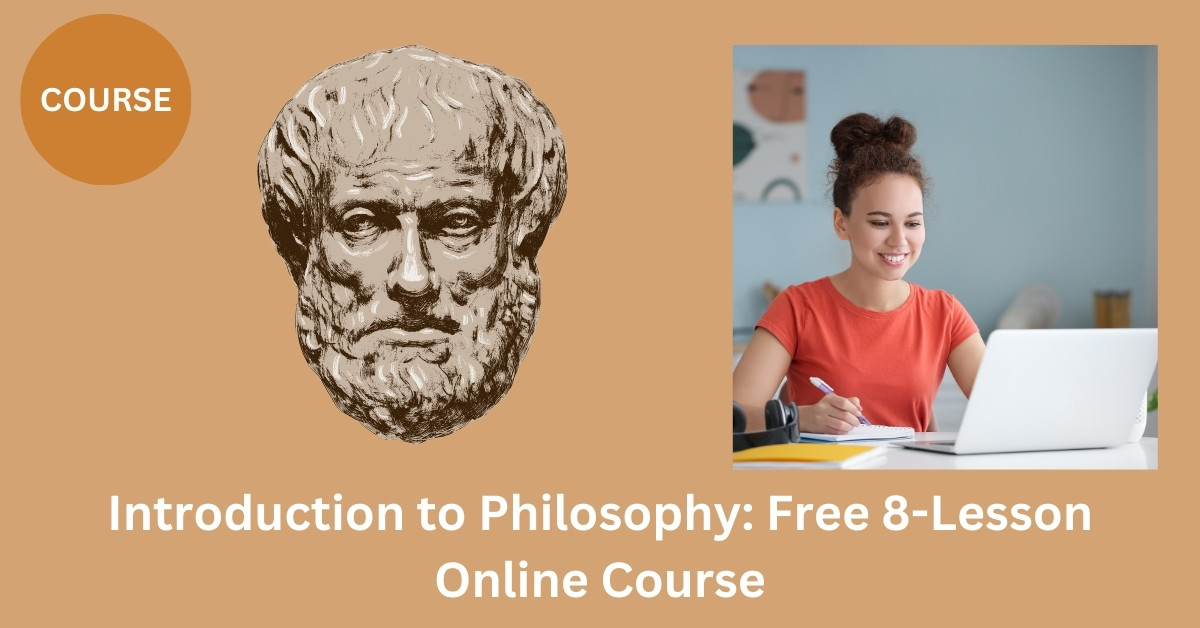This article delves into the realm of existentialism, shedding light on the significance of the idea of meaningfulness and its relevance to our pursuit of a more purposeful life. Many people who embark on their philosophical journey with the intention of living a more meaningful life often overlook the fundamental importance of understanding the concept of meaningfulness within existentialism. However, acquiring a thorough understanding of this idea holds immense value in guiding us towards a more profound engagement with philosophy and ultimately, in our quest to lead a life that is rich with personal meaning. Join us as we explore the depths of existentialism, unravel the notion of meaningfulness, and discover their profound relevance to our philosophical pursuit of a more meaningful life.
Key features of existentialism

Existentialism is a philosophical movement that emerged in the 20th century and emphasizes individual existence, freedom, and subjective experience. It tackles fundamental questions about human existence and the meaning of life, focusing on the individual’s responsibility in creating their own purpose and finding significance in the face of an inherently absurd and chaotic world. Here are some key features of existentialism explained in easy-to-understand language:
- Existence precedes essence: Existentialism rejects the idea that there is an inherent purpose or meaning to human life. Instead, it argues that individuals are born without a predetermined essence and must create their own through their choices and actions. In other words, who we are is not predetermined but shaped by how we live our lives.
- Authenticity and freedom: Existentialism places a strong emphasis on personal freedom and the need for individuals to take responsibility for their choices. It encourages us to act authentically, aligning our actions with our true values and beliefs. This means being honest with ourselves and not conforming to societal pressures or expectations.
- The absurdity of life: Existentialism acknowledges the inherent absurdity and unpredictability of human existence. It recognizes that life can feel meaningless and chaotic, but rather than despairing, it encourages individuals to find their own purpose and create meaning through their subjective experiences.
- Anguish and anxiety: Existentialism recognizes that grappling with the uncertainties and complexities of existence can lead to anguish and anxiety. It highlights the importance of facing these existential challenges head-on and embracing the discomfort in order to grow and discover deeper truths about ourselves and the world.
- Individuality and uniqueness: Existentialism celebrates the uniqueness and individuality of each person. It rejects the notion of fitting into predetermined molds or societal norms, encouraging individuals to embrace their own authentic identity and create their own path in life.
Existentialism offers a thought-provoking perspective on the human condition, urging individuals to embrace their freedom, confront their anxieties, and create their own meaning in a world that can often be bewildering and uncertain.
What is meaningfulness?
Existentialism, a philosophical perspective that emerged in the 20th century, offers a unique understanding of meaningfulness. According to existentialism, meaningfulness is not something inherent or predetermined, but rather a subjective and personal construct that individuals create through their own choices and actions.
In the existentialist view, the meaning of life is not discovered, but rather crafted by each individual. It emphasizes personal freedom and responsibility, asserting that we are the architects of our own lives. Existentialists believe that our existence precedes our essence, meaning that we exist first and then define ourselves through the choices we make.
Existentialism recognizes the inherent tension between our desire for meaning and the inherent absurdity of existence. It acknowledges that life can be inherently meaningless, but argues that we have the power to infuse it with meaning through our actions and attitudes. By embracing our freedom and taking responsibility for our choices, we can find purpose and significance in the face of life’s uncertainties.
Existentialism also emphasizes the importance of individuality and authenticity. It encourages individuals to live in accordance with their true selves, rather than conforming to societal expectations. By living authentically and embracing our own values and beliefs, we can create a sense of meaningfulness that is true to who we are.
In summary, existentialism views meaningfulness as a subjective construct that individuals create through their choices and actions. It emphasizes personal freedom, responsibility, and authenticity as essential elements in crafting a meaningful life.
The subsequent example vividly demonstrates this philosophical perspective.
Imagine a person named Alex, who has always felt constrained by societal expectations and the conventional paths of life. Alex questions the purpose and meaning behind these established norms, feeling a deep longing for personal authenticity and freedom. This longing leads Alex to embark on a journey of self-discovery, embracing the philosophy of existentialism. According to existentialism, meaningfulness is not predetermined or imposed by external forces but is an individual’s responsibility to create through their choices and actions.
In Alex’s story, embracing existentialism brings a sense of liberation and purpose. By rejecting societal pressures and embracing personal agency, Alex finds meaning in pursuing passions, forming authentic connections, and living a life aligned with their true values. The focus shifts from conforming to societal expectations to embracing one’s unique identity and carving out a meaningful existence. Through this example, we witness how existentialism offers a different lens on meaningfulness, emphasizing personal freedom and responsibility in the search for purpose.
Challenges to existentialism’s view about meaningfulness
Existentialism has long been a subject of philosophical debate, with some philosophers objecting to or rejecting its view about meaningfulness. Here are a few reasons why:
- Subjective Nature of Meaning: Critics argue that existentialism’s emphasis on individual subjective experience and personal choice in determining meaning can lead to a relativistic understanding of meaning. They contend that if meaning is solely derived from personal preferences or arbitrary choices, it lacks a universal and objective foundation.
- Absence of External Standards: Opponents of existentialism also question the absence of external standards or moral frameworks in determining meaningfulness. They argue that existentialism’s focus on individual freedom can undermine the existence of moral principles or ethical guidelines that provide a broader understanding of meaning and purpose.
- Reliance on Individual Autonomy: Some philosophers object to existentialism’s heavy reliance on individual autonomy and self-creation as the primary sources of meaning. They argue that this emphasis neglects the importance of social and cultural factors that shape individual experiences and values. Critics contend that a purely individualistic approach to meaning fails to acknowledge the interconnectedness of human existence and the significance of collective endeavors.
- Existential Anxiety and Despair: Another objection raised by critics is the potential for existentialism to lead to existential anxiety and despair. Critics argue that the acknowledgment of human freedom and responsibility, along with the absence of predetermined meanings, can create a sense of overwhelming existential uncertainty and nihilism. They question whether existentialism offers sufficient resources to address the existential angst that can arise from such realization.
- Critique of Authenticity: Existentialism places a significant emphasis on authenticity, the idea of living in accordance with one’s true self and values. However, critics argue that the concept of authenticity can be problematic, as it presupposes a fixed and essential self. They question whether such a notion is plausible given the complex and evolving nature of human identity.
It is important to note that these objections and critiques do not negate the value or significance of existentialism as a philosophical perspective. Rather, they offer alternative viewpoints and raise important considerations for further exploration and understanding of the complexities surrounding the concept of meaningfulness.
Why meaningfulness is important to existentialism
Understanding the concept of meaningfulness is crucial for comprehending existentialism, as it sheds light on the fundamental reasons behind the significance of this philosophical perspective.
- Guide to Existential Understanding: The concept of meaningfulness plays a vital role in understanding existentialism. It serves as a guiding principle, offering insight into the fundamental questions and concerns addressed by existentialist thinkers. By exploring meaningfulness, we gain a deeper understanding of the existentialist perspective on human existence, purpose, and the search for significance.
- Foundation for Personal Authenticity: Meaningfulness is essential to comprehending existentialism because it forms the foundation for personal authenticity. Existentialism emphasizes the importance of individual agency and responsibility in creating meaning in one’s own life. Understanding the role of meaningfulness enables individuals to embrace their unique experiences, values, and choices, paving the way for living authentically and in accordance with one’s true self.
- Navigating Existential Angst: Another reason why the philosophical idea of meaningfulness is crucial to understanding existentialism is its role in navigating existential angst. Existentialism acknowledges that life can be filled with feelings of anxiety, despair, and uncertainty. However, by grappling with questions of meaningfulness, individuals can find solace and purpose even within the existential struggle. Exploring meaningfulness helps individuals confront the inherent challenges of existence, providing a framework for finding personal fulfillment and transcending existential anguish.
- Engagement with Life’s Possibilities: Meaningfulness is integral to existentialism as it enables individuals to engage with life’s possibilities. Existentialists emphasize the importance of embracing freedom and embracing the responsibility to make choices that align with one’s values and aspirations. By understanding meaningfulness, individuals can embark on a journey of self-discovery, exploring various paths and possibilities, and creating a life that is personally fulfilling and aligned with their individual sense of purpose.
Understanding the importance of meaningfulness in the context of existentialism facilitates a deeper appreciation for the existentialist perspective on human existence, personal authenticity, confronting existential angst, and engaging with life’s possibilities. It invites individuals to reflect on the pursuit of meaning and purpose in their own lives and embrace the freedom and responsibility that comes with it.
Contrasting existentialism with Hegel’s philosophy
Existentialism offers a unique perspective on the concept of meaningfulness, which sets it apart from Hegel’s philosophy. While both philosophies explore the nature of human existence, they diverge in their approach to understanding the source of meaning in life.
Existentialism emphasizes individual subjective experience and personal responsibility in creating meaning. According to existentialist thinkers like Sartre and Camus, individuals have the freedom to shape their own lives and determine the meaning of their existence through their choices and actions. They reject the idea that meaning is predetermined or derived from external sources such as societal norms or religious beliefs. Instead, existentialists emphasize the importance of individual authenticity and the pursuit of personal values and passions as the foundation of a meaningful life.
On the other hand, Hegel’s philosophy, influenced by German Idealism, focuses on the concept of historical development and the interplay of ideas in shaping reality. Hegel argues that meaning and progress are achieved through a dialectical process where contradictions in ideas or concepts are resolved to create a higher synthesis. Unlike existentialism, which places emphasis on individual subjectivity, Hegel’s philosophy highlights the role of societal and historical forces in shaping meaning.
In essence, existentialism’s view on meaningfulness differs from Hegel’s philosophy by placing the individual at the center of meaning-making and emphasizing personal freedom and choice. Existentialism encourages individuals to seek meaning through their own unique experiences, while Hegel’s philosophy emphasizes the role of society and historical development in shaping meaning. By recognizing these distinctions, we gain deeper insights into the diverse ways in which different philosophical perspectives engage with the question of meaningfulness in human existence.
Meaningfulness, existentialism and the meaning of life
Existentialism, with its deep contemplation of life’s meaning and purpose, may seem like a complex philosophical concept to navigate. However, reflecting on existentialism and its perspective on meaningfulness can have practical importance in our quest for a more meaningful life.
At its core, existentialism encourages us to confront the fundamental questions of existence and take responsibility for our own lives. It urges us to acknowledge the freedom and agency we possess in shaping our own paths and finding meaning within the choices we make. While you may or may not agree with the specific view of existentialism about meaningfulness, exploring its ideas can offer valuable insights that can guide you towards a more purposeful and fulfilling life.
By reflecting on existentialism, you are prompted to examine the deeper layers of your existence and challenge the assumptions and societal expectations that may have influenced your previous notions of meaning. This process allows you to gain a clearer understanding of your values, passions, and desires, serving as a compass to navigate towards a life that aligns with your authentic self.
Moreover, contemplating existentialism encourages you to confront the realities of human existence, including the transient nature of life and the inevitability of uncertainty. Embracing these existential truths can foster a sense of urgency and appreciation for the present moment. It reminds us to cherish the relationships, experiences, and opportunities that bring meaning to our lives, rather than getting caught up in the pursuit of external achievements or societal pressures.
By reflecting on existentialism’s perspective on meaningfulness, you gain a deeper insight into your own values, priorities, and what truly matters to you. This self-awareness empowers you to make intentional choices that align with your personal sense of meaning and purpose. It encourages you to take ownership of your life, embrace your individuality, and create a life that is uniquely fulfilling for you.
In conclusion, while existentialism’s view about meaningfulness may be subject to personal interpretation and agreement, reflecting on its ideas can have practical importance in your pursuit of a more meaningful life. By exploring these concepts, you can gain clarity about your values, embrace the present moment, and make choices that align with your authentic self. Ultimately, it is through sincere self-reflection and conscious living that we can cultivate a life rich in meaning and fulfillment.


